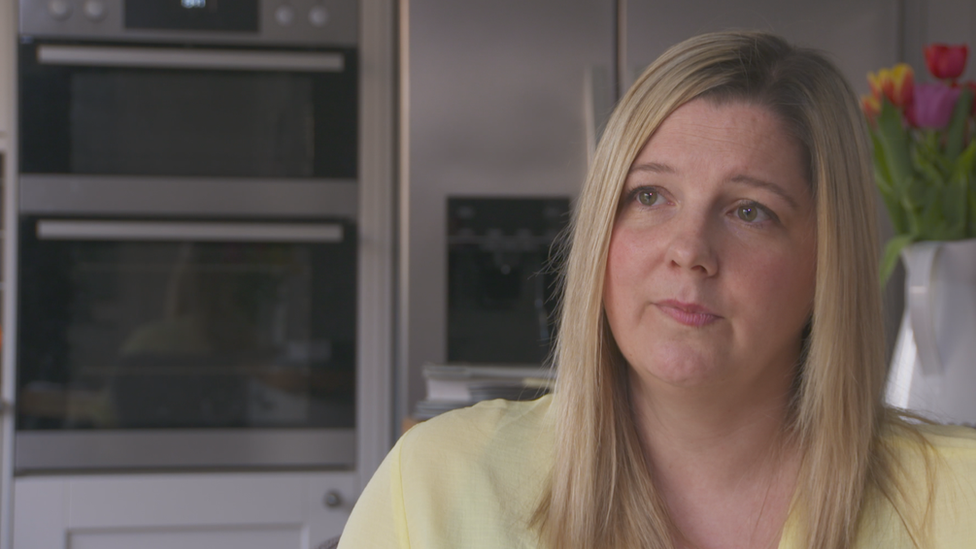Bowel cancer mum 'facing death sentence' amid drugs uncertainty
- Published
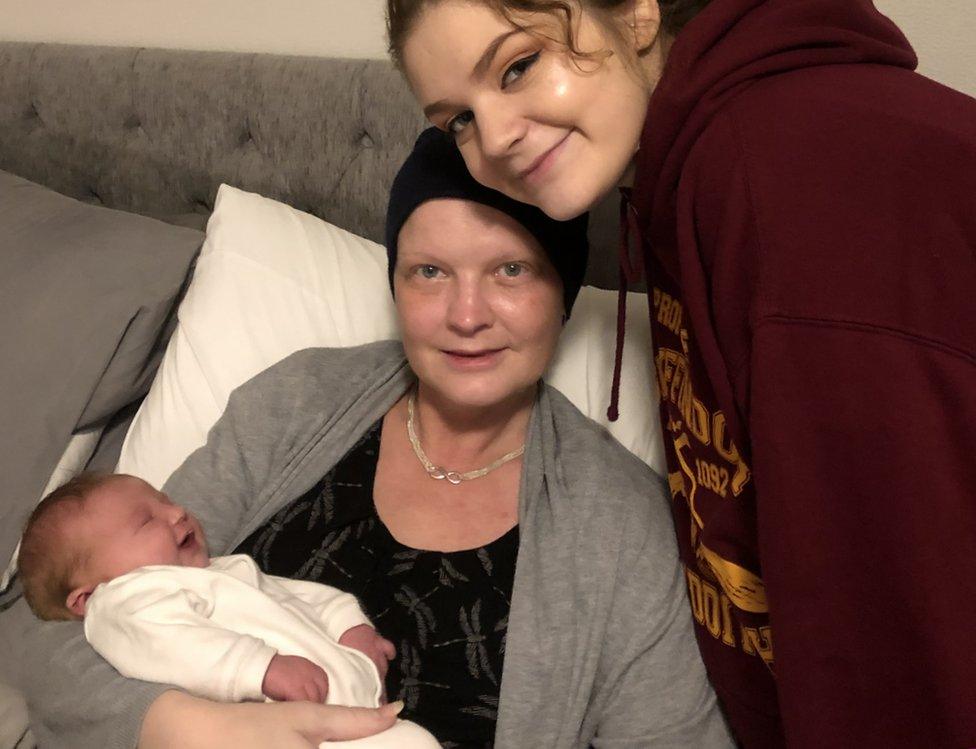
The drug allowed Charlene Roxburgh to become a grandmother for the first time
A mother-of-two with bowel cancer said she was facing a "potential death sentence" unless the NHS agreed to fund the drug keeping her alive.
Charlene Roxburgh, from Ipswich, was diagnosed with cancer two years ago and sent home to die a few months later.
Against the odds, her health stabilised, so doctors experimented with a drug only approved for other types of cancer.
It proved to be a "miracle" for her but it costs £5,000 a month.
The drugs manufacturer Bristol Myers Squibb (BMS) agreed to fund nivolumab on a trial basis for two years, after a special request from Mrs Roxburgh's consultant.
However, the 42-year-old is already one year into that agreement and said she had no idea what would happen when it ended.
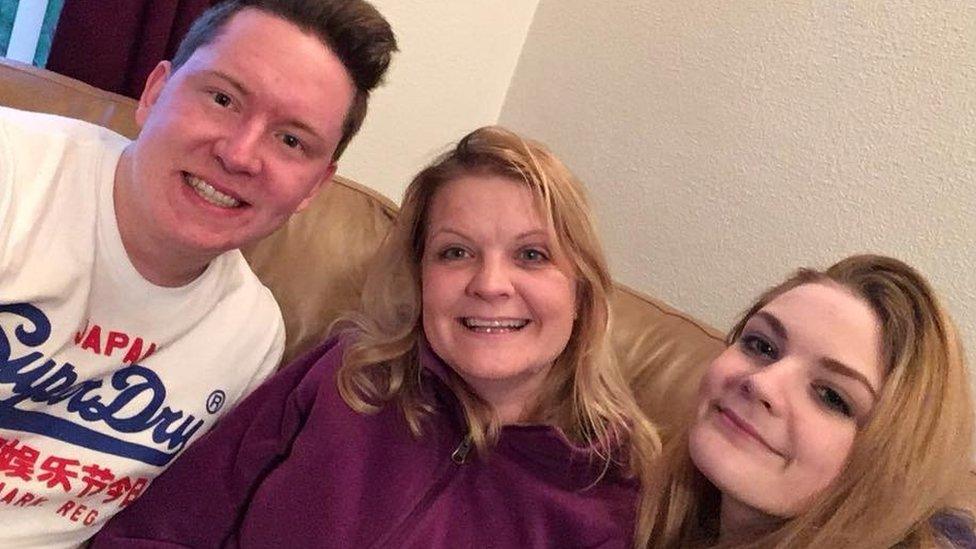
Charlene Roxburgh, pictured with her son Sean and daughter Beth, was diagnosed with cancer two years ago
"This drug has saved my life. I was on my deathbed, I was weeks away from dying," Mrs Roxburgh said.
"My tumours are a third of the size they were.
"It allowed me to become a grandmother for the first time last year."
The former primary school head teacher has a rare type of cancer called MSI-high or mismatch repair deficient bowel cancer.
Nivolumab is an immunotherapy drug approved for lung, kidney and skin cancers but not for other cancers.
Unless NICE, the government body responsible for deciding which drugs should be available on the NHS, approves it for her type of cancer, she will have to pay £5,000 a month for it when the agreement ends.
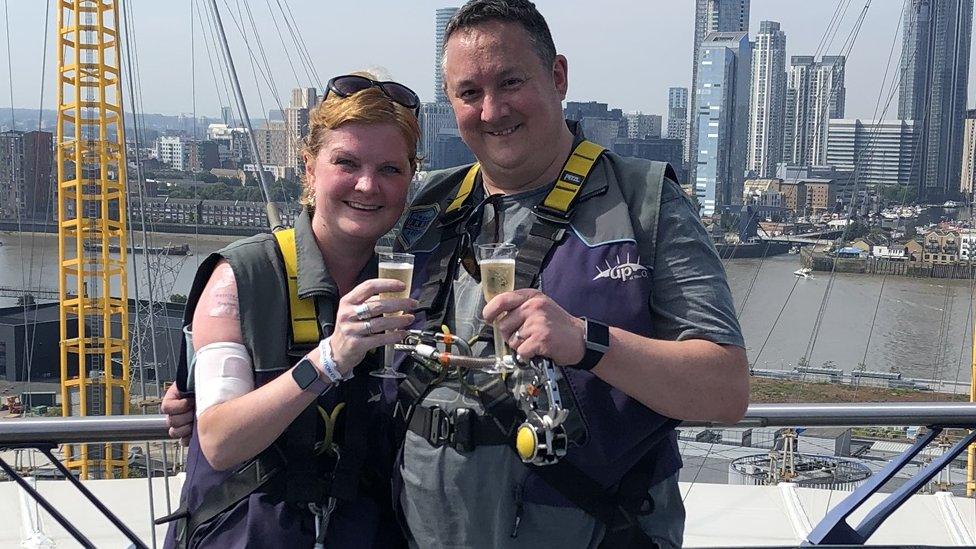
This photo was taken on Charlene and Andy's first wedding anniversary. They got married at Gretna Green in August 2018 when she was told her cancer was terminal
"I have had to retire early from a job that I loved and it would be impossible for us to fund it," said Mrs Roxburgh.
"It seems so unfair that I could have it for free if I had a different type of cancer.
"I feel so grateful for every extra day but I definitely feel like I'm living on borrowed time."
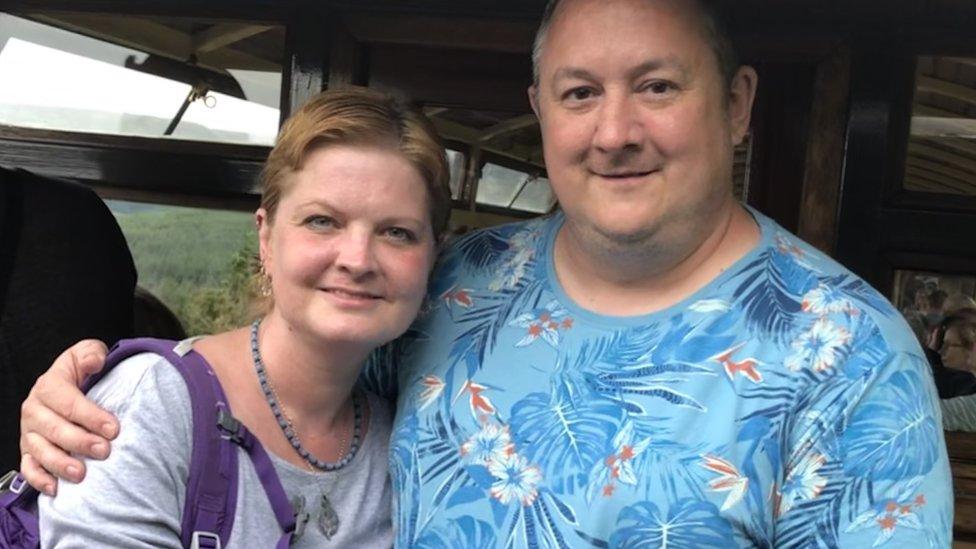
Charlene's husband Andy started a petition to allow people with her rare type of bowel cancer to have access to the same drugs as other cancer patients
Mrs Roxburgh's husband Andy started a petition, external which has been signed by more than 110,000 people.
He said: "We need the NHS to agree to fund the drug for this type of rare bowel cancer as it clearly works for some.
"I want to raise awareness of this small group of people who could hugely benefit from a drug already funded for other people."
NICE said it was forced to suspend its appraisal, external of the drug after BMS withdrew its application to get the drug approved.
BMS said it did this, despite positive data for treating bowel cancer with nivolumab, because it could not conclude the benefit outweighed the risk because of the "non-comparative design of the study and the limited number of patients."
A spokeswoman added: "Bristol Myers Squibb remains committed to addressing the unmet need in bowel cancer and will continue to investigate nivolumab in this indication."

Find BBC News: East of England on Facebook, external, Instagram, external and Twitter, external. If you have a story suggestion email eastofenglandnews@bbc.co.uk, external
- Published17 May 2019
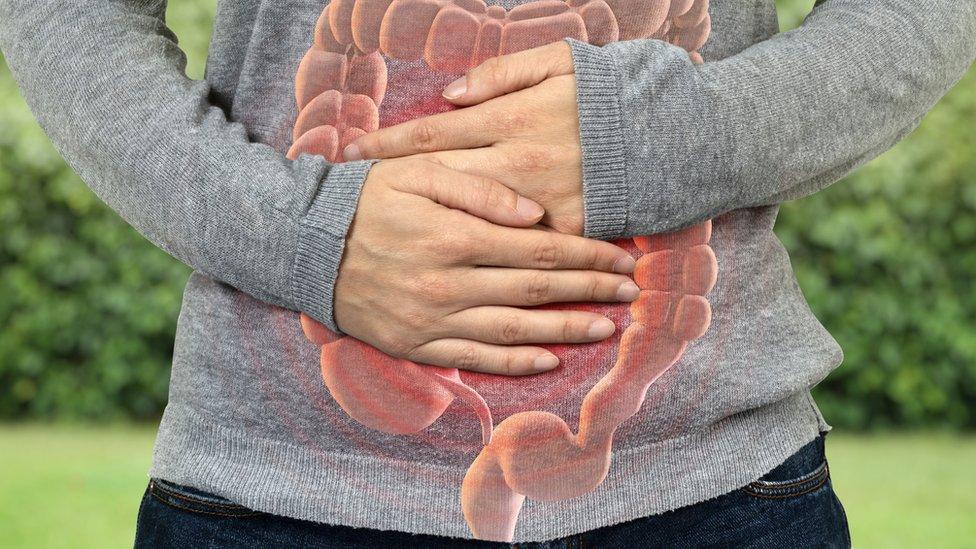
- Published3 April 2019
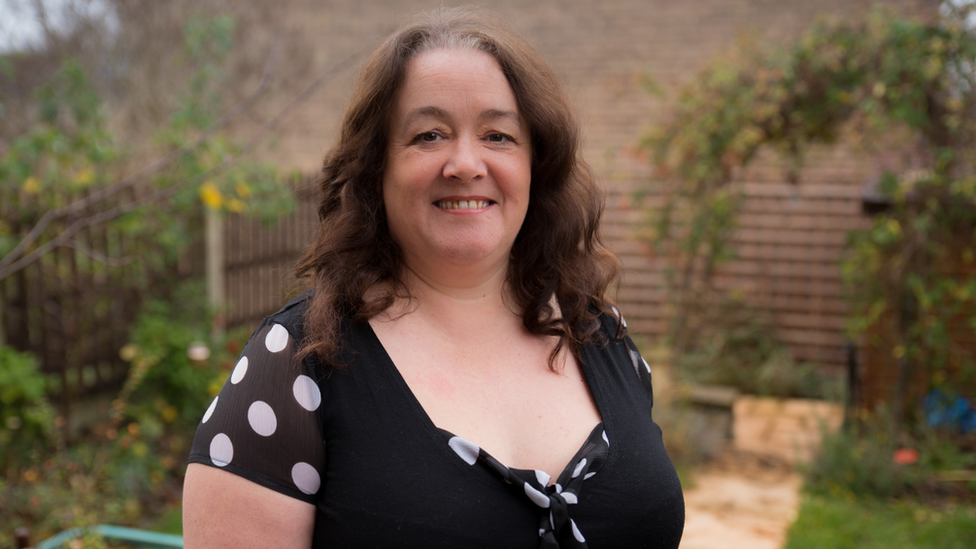
- Published10 April 2019
